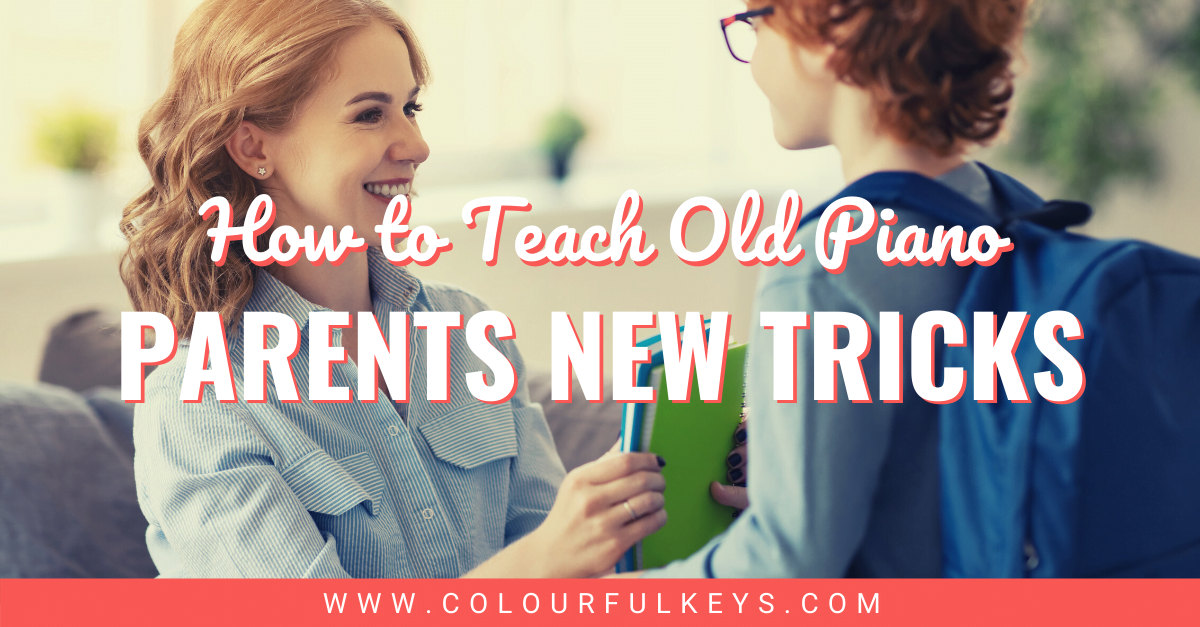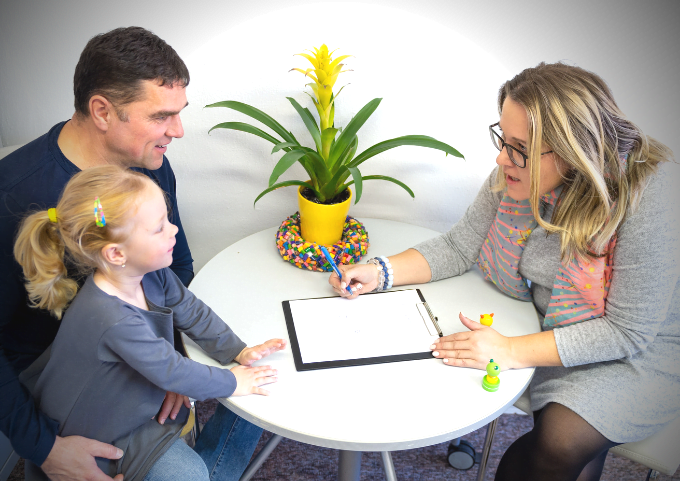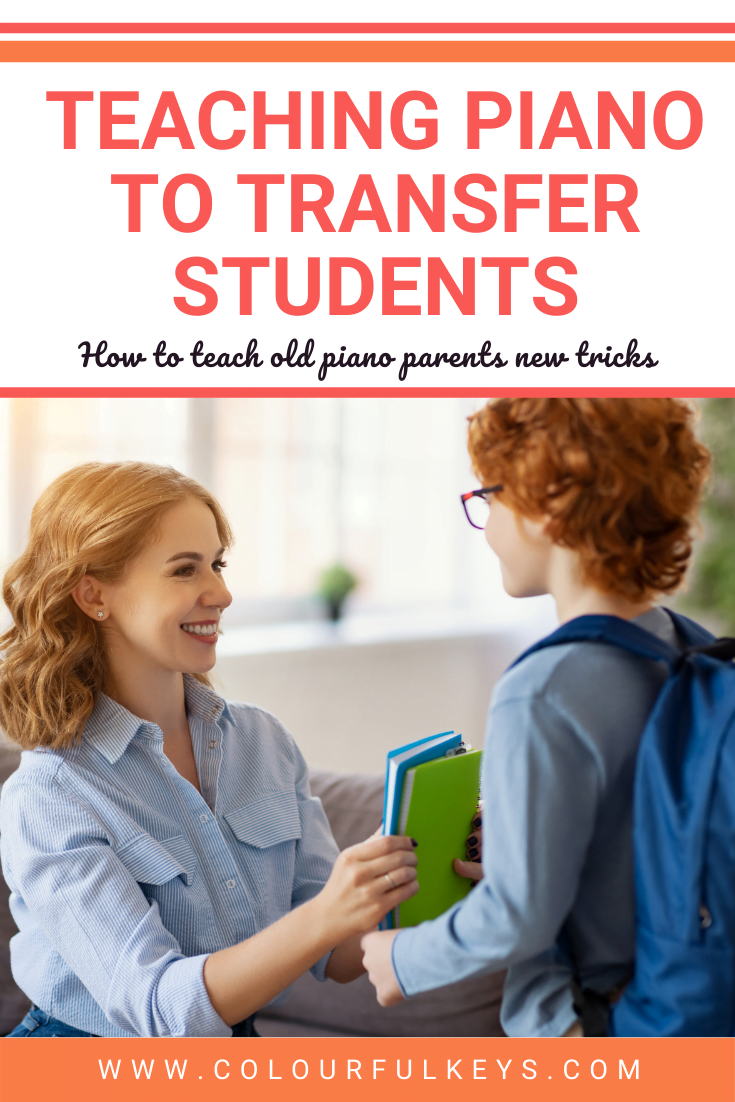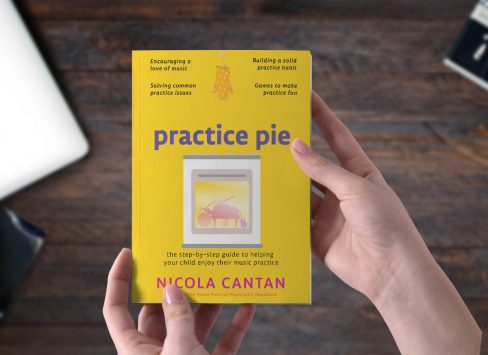Ever struggled with the parents of piano transfer students? They’ve often learnt a few habits from their other teacher which aren’t quite as welcome in your studio.
Here are some strategies you can use to teach an “old” piano parent new tricks.

⬆️ Listen to the podcast above or keep on reading, whichever fits your style. ↙️
We all have systems in place to successfully onboard complete beginner piano students and their parents. This should be no different when we take on transfer students.
It’s just as crucial with the parents of transfer piano students – perhaps even more so.
With a brand-new piano student, you are building a new habit from scratch (be that practice, paying you on time, reading their emails, etc.) but with a transfer piano parent, you have to deconstruct before you build. ⛏️
Let’s take it from the top and get this new-to-you piano parent off to a great start.
Piano Transfer Family Interview
Do. Not. Skip. This. Step.
I don’t care whether you call it an interview, a meeting, meet ‘n’ greet, coffee catch up or studio visit. You must meet with your all new piano families before the first lesson.
Phew. Sorry for getting so serious, but I know how tempting it is to skip this when you’re excited to get going with a new student! 😬
The onboarding interview is not only an important step to see if students are the right fit for your studio, but it’s also a crucial one to explain your policies, procedures and expectations. It will also give you a chance to find out about their experience at the previous studio so you know where you’re starting from.
What to Find Out
This is a great opportunity for parents of potential piano transfer students to share with you what worked really well with the previous teacher and what didn’t work so well.

This isn’t about talking the previous teacher down. Remember that we all have strengths and weaknesses, and some students will fit better with one teacher over another.
It is, however, a great way to learn new techniques or continue with methods which worked really with this particular student and to find out about any unrealistic expectations they may have about your studio.
Ask them:
- What did they enjoy most about their lessons with the other teacher?
- Was there anything they wish had been included?
- What do they find challenging about studying piano?
- How has practice been going, and how much do they do currently?
Make sure you also find out about their home instrument. It’s pretty standard to ask new families about their piano/keyboard setup, but you might think it’s a given with a transfer family.
Don’t take it for granted that they have a decent instrument and bench.
It’s your responsibility to make sure they are set up for practice success, even if they’ve been studying for 10 years!
What to Communicate
Now that you know some things about them, it’s time to share about your studio. This is like a first date so make sure you’re friendly…but also clear about your expectations. 🥰
They should leave the meeting with all the info they need about:
- Policies & procedures – How do things work in your business
- Communication channels – Your business hours and how you prefer they get in touch, e.g., chat through a practice app, email, text, phone calls
- Practice expectations – How much, how often and how!
Be as comprehensive as you can without overburdening them with information.
It’s good to give an overview of everything, but we’re not expecting them to remember every detail right now. That’s what the followup is for.
Email Followup
Setting up automatic emails for new students, whether they are transfer or brand-new complete beginners, helps to secure your communication.
Most teachers have the enquiry followup and meeting followup covered. What they’re missing is the onboarding sequence.
That might sound a little bit extra but it can be simple and oh so valuable. Onboarding emails are messages which you send to all new students in their first few months in the studio. Ideally they’re sent automatically, but you can also do them one-by-one if you prefer.
Members of Vibrant Music Teaching can access my own email sequence to use it as a starting point, along with a video tutorial which shows you how to set this up using a free Mailerlite account.
Not a VMT member? Learn more and join today!
Make sure you send emails to your new “old” piano parents to reinforce what was discussed at the first meeting and give them tips for making the most of the lessons. Everything from practice to recital dates to car parking rules can go in this sequence so you’re sure you have all the bases covered.

Bonus tip: Ask parents about these emails when you see them. You need to make sure they’re receiving them and reading them for this to work!
Casual Check-ins
If you want to come across as helpful and supportive (not bossy and demanding) it’s really important which you check in regularly.
For parents who you see at pickup and drop off, this can just be a quick “Hey, how’s practice going at home? Anything I can help clarify or make easier?” If you don’t see the parent regularly, then this can be done over text or email and the occasional phone call.
The point here is to chat about practice and other expectations often – don’t wait until it’s a problem. When you wait until it reaches a frustration point for you, it might come across as chastising. Do it regularly and it won’t be a big deal.
Semi-Formal Feedback
Aside from the more casual chats, you’ll also want some more systemitised processes. These don’t have to feel stuffy. They’re just there to make sure the channels of communication stay open at all times.
Feedback goes both ways. Make sure parents can fill you in as well as you providing updates to them.
Parent Surveys and Forms
I recommend sending some kind of survey to all your piano parents at least once a year. This should ask about what changes they would like to see and provide a space for general feedback. It can also double-up as a place to collect testimonials for your website. ✅
When you look through the replies to these forms, take special note of whether there are any trends in the responses from transfer parents vs those who started with you from the beginning.
- Do the transfer parents lament a lack of practice more often?
- Do they value certain things in your studio more?
- Are they more concerned about the performance opportunities you provide?
These trends could be in any area. Keep your eyes open and tweak the onboarding accordingly. 👀
Progress Updates
Twice a year, I send a short progress update to all parents in my studio. This lets them know how their kiddo is tracking in the areas of aural, practice, reading, technical work, technique, and theory.
It’s very simple in nature as you can see, and I just write a few lines for each area. But it works.
It lets parents know that we have a plan and that we’re paying attention, which helps the over-involved parents to sit back and chill. They know we’ve got this.
It also provides a space where you can make any recommendations about their practice. These may be things we’ve mentioned to parents already, but it comes across differently in writing and can help drive the point home.
Parent Chat Meetings or Workshops
Every so often, I like to offer a workshop for parents in my studio. This is a great chance for them to meet other parents and discuss common challenges.
It can be especially enlightening for transfer parents as they finally see they’re not alone and get some tips for solving the piano problems in their own home. I may have given them these tips before too, but it’s different to hear it from a fellow parent.
Bring your transfer piano parents into your studio community with open arms and you’re sure to have a successful relationship for years to come. 🤗
Bonus tip!
If you want all your parents to learn a few things about practice, you could gift them a copy of Practice Pie when they join. This is my fun little book for parents which covers how to develop a practice routine and support their child in practice.
You can get it anywhere you like to buy books like Bookshop.org, Amazon or directly from me. You can even ask your local library to order it in and it’s also available in audio! 😀
What one question do you always ask the parents of piano transfer students?
I’d love to hear your thoughts on this in the comments below. 🙂
For more tips working with piano parents, check out the resources on my Studio Business hub page.

